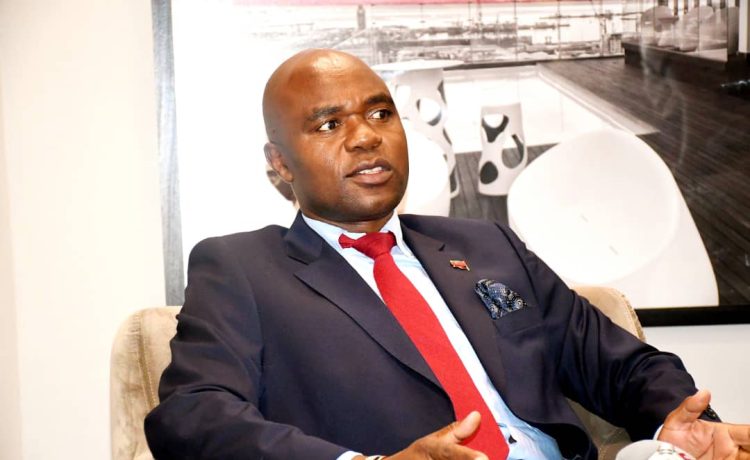Former MCP Secretary General and possible Leader of Opposition in Parliament, Eisenhower Mkaka, has sharply dismissed newly elected President Peter Mutharika’s claims that his administration will solve Malawi’s fuel crisis through a $500 million Letter of Credit (LC) facility — describing the promise as “technically impossible and economically hollow.”
In a detailed and enlightening post titled “Understanding How Letters of Credit Operate – APM’s Panacea for the Fuel Challenge,” Mkaka, a former banker with solid experience in international trade finance, dissected Mutharika’s proposal with precision, exposing it as nothing more than a public relations stunt meant to create false hope among struggling Malawians.
“No bank on the face of the earth will ever issue a $500 million LC on behalf of Malawi without knowing where it will get the forex to pay invoices when they fall due,” Mkaka explained. “This is the correct technical position. I sat with my mouth agape wondering how the LC would be issued and which bank would take that risk!”
Mkaka began by breaking down the basic mechanics of Letters of Credit — a trade finance instrument used to guarantee payment between buyers and sellers in international transactions. In simple terms, he said, an LC is a promise by a bank to pay a seller once all conditions in the agreement are fulfilled. But, crucially, for a bank to issue an LC, there must be sufficient foreign currency (forex) to back it up. Without forex, the LC is nothing but a piece of paper.
“Before a bank issues a Letter of Credit, it ensures it’s fully covered — in terms of security and available forex,” Mkaka explained. “The invoices under the LC are paid in foreign currency when they fall due. That’s the gist of it.”
It was this fundamental principle, Mkaka argued, that makes Mutharika’s promise unrealistic.
In his first address to the nation from his Nyambadwe residence as president-elect, Mutharika outlined five key challenges his administration would focus on: hunger, fertiliser shortages, forex scarcity, fuel shortages, and drug stock-outs. However, Mkaka pointed out a glaring contradiction — the President admitted there was a forex shortage, yet proposed a $500 million LC as a solution to fuel scarcity, an idea that depends entirely on the very forex Malawi currently lacks.
“First things first,” Mkaka wrote pointedly, “how is the forex challenge going to be resolved? Then tell us about the LCs! Without this, the fuel challenge will remain. Otherwise tikudyetsana galu msanasana!”
Mkaka’s intervention has struck a chord with many Malawians who feel déjà vu creeping in — remembering how similar lofty promises were made during DPP’s previous administrations, only to end in scandal and shortage. Economists echo Mkaka’s concerns, noting that no reputable bank would risk issuing such a massive LC without clear assurance of repayment or adequate forex reserves. Malawi’s reserves currently hover at dangerously low levels, barely enough to cover a few weeks of imports.
In short, Mkaka’s argument is clear: you cannot buy fuel with empty pockets, no matter how grand your promises sound on television.
Mkaka’s critique also serves as a reality check for the new administration — a reminder that the laws of economics cannot be suspended by rhetoric. Issuing an LC without forex is like trying to milk a cow that hasn’t eaten in weeks. As one African proverb says, “A man who boasts of roasting meat must first show the fire.”
For Mkaka, Mutharika’s “$500 million LC solution” is a mirage — a grand illusion designed to pacify public anxiety rather than solve the actual problem. The former banker’s voice, calm yet cutting, pierces through the fog of political spin with the precision of someone who knows the system from the inside.
“You can’t issue a Letter of Credit without forex,” Mkaka concluded. “So before talking about LCs, let’s talk about how we are going to get the forex first.”
In a country already on edge from fuel queues, rising prices, and growing frustration, Mkaka’s words resonate like a warning bell: if the government doesn’t fix the fundamentals, Malawi’s fuel tank — and its economy — will remain dangerously empty.













